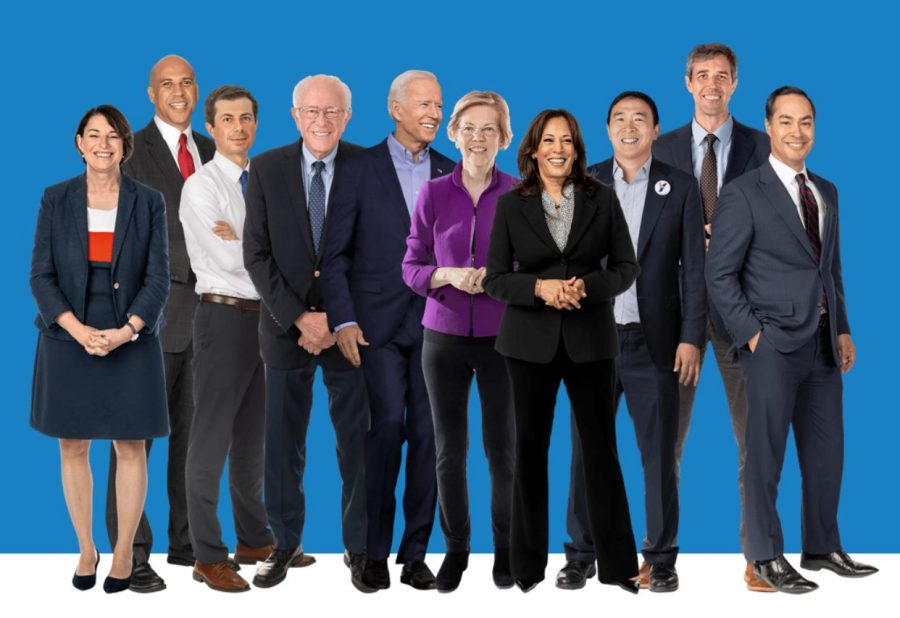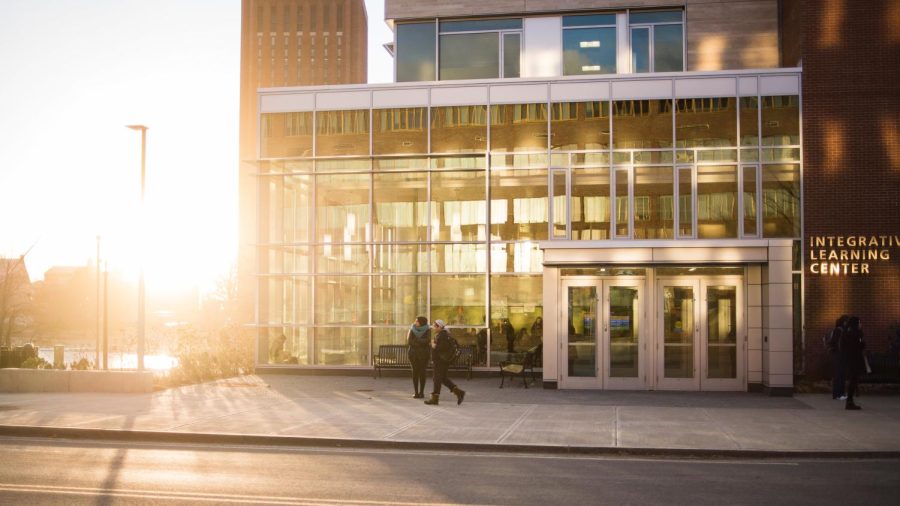The fourth democratic debate, hosted by CNN and The New York Times, went off without a hitch. Twelve of the 19 democratic candidates running for president were present on the stage. The debate included front-runners former Vice President Joe Biden and Sen. Elizabeth Warren alongside Sen. Bernie Sanders, Mayor Pete Buttigieg and other recognizable faces.
The debate featured a different format than the previous ones. Before, there were two-night debates due to the sheer number of candidates, and popular candidates were separated so that all candidates could be present and given the opportunity to shine. However, now there is a new set of requirements in order to take the debate stage.
The Democratic National Committee established newer and harder requirementsto enter the upcoming debate in November. If a candidate wishes to qualify, they must have “at least 165,000 individual donors and must meet one of two polling requirements.” These polling requirements include either, “3 percent support in four national or early-state polls conducted by qualifying pollsters, or 5 percent support in two polls in the four early states: Iowa, New Hampshire, Nevada and South Carolina,” according to the New York Times. Ten of the 19 candidates have qualified for the debate thus far.
Fitting 19 candidates on one stage is unrealistic, but splitting the pool into two different groups splits the audience’s attention. A large candidate pool is something that the debate format has not handled before. In this respect, one can understand to some degree why the DNC would institute such requirements.
Yet, the new rules set by the DNC act as natural selection. Yes, it weeds out the weaker candidates based off popularity and donors, but it hinders lower-ranking candidates’ ability to reach the audience. It feels like kids being kicked out of the sandbox because they’re not popular enough. Candidates like Sen. Kristen Gillibrand and Gov. Jay Inslee dropped out of the race before the September debate because they realized they would not qualify for future debates.
“At this point, there isn’t much left to be said regarding a set of rules that have allowed a billionaire to bankroll his way onto the debate stage, while governors and senators with decades of public service experience have been forced out of the race,” said Gov. Steve Bullock, referring to billionaire businessman Tom Seyer qualifying for the October debate. Bullock hits the nail on the head. Other candidates who are more popular or have more money can invest in themselves to keep their campaign alive, while other candidates aren’t as fortunate.
Even with that in mind, the October debate still had some flaws. From looking at the debate, the front-runners are typically placed in the center of the stage. At the October debate, Warren and Biden were in the center of the group, followed by Sanders and Buttigieg. Every debate, whether Democrat or Republican, places the front-runners in the middle. In 2016, then-candidate Donald Trump was placed in the center of the pack. If candidates were rearranged, different candidates could get more exposure.
But even if the front-runners and popular candidates were rearranged, some would still get more airtime than others. In a FiveThirtyEight analysis of the Oct. 15 debate, Warren spoke a total of 3,695 words while Biden spoke a total of 3,064 words. Take that word count and compare it to Rep. Tulsi Gabbard or entrepreneur Andrew Yang, who spoke 1,497 and 1,791 words, respectively.
Popular candidates were able to command the floor and have the opportunity speak longer. If the same three to four candidates hog the floor, then what’s the point of the rest of the field being there? The lower-ranked candidates didn’t sign up to be an extra in the Biden/Warren show. They want to express their ideas and reach viewers, too. But these lower-ranked candidates also need to be aggressive and grab an opportunity to speak when they can.
If you want to weed out candidates, it is better to show the audience that a candidate is not qualified rather than completely ignoring them. By having the moderators give equal airtime to the best of their ability, the audience could get a sense of candidate and from there they can make their own decisions. Switching up the order of where candidates could give a fresh look for other candidates. And while money is a deciding factor, the DNC’s rules eliminate candidates that could do an equal or better job than the front-runners.
Nicole Biagioni is a Collegian Columnist and can be reached at [email protected].




















joey d • Oct 22, 2019 at 4:37 am
Why so many white people?? Why are democrats so racist?? They are 2 people of color and its like they just put them as tokens.. so sad!